Fidel Castro Ruz and the significance of the Cuban revolution
Fidel Castro
60 years ago, 2 December 1956, Fidel Castro with a detachment arrived in Cuba for the purpose of a coup d'état. The Granma yacht moored to the shores of the island with Fidel and 80 on board. They landed in the province of Oriente with the intention of uniting with the Cuban revolutionary groups.
In the first battle with government troops, revolutionaries were defeated, but several people led by Castro made their way into the mountains of Sierra Maestra. Fidel organized the rebel army, which in 1956-1958's. spread its actions to other areas of Cuba. In the decisive battles at the end of 1958, the rebel army of Fidel defeated government forces. 1 January 1959, the rebels entered Havana, where Castro formed a new Cuban government from among his allies. In February, 1959, he took over as head of government.
Thus, Fidel Castro proved by his example that a cohesive and decisive minority can radically change the situation in the country and, by armed means, overthrow the seemingly invincible authoritarian regime that relied on America. The amazing victory of the Cuban Revolution changed the fate of the countries of Latin America, challenged the owners of the United States and allowed socialism to take root in this region, which had long been under the “wing” of the West.
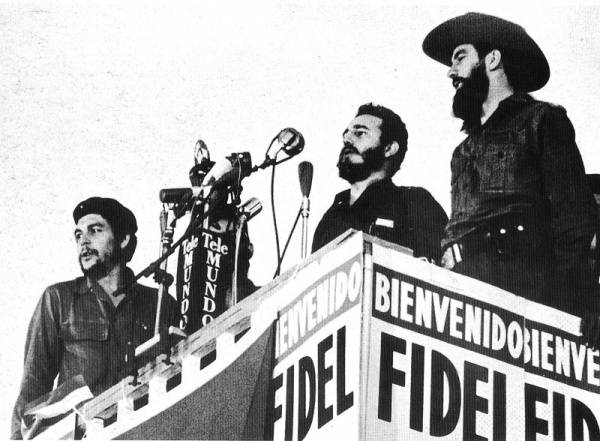
Origin. Youth
Fidel Alejandro Castro Ruz was born on August 13 1926 (according to other sources he was born on 1927) in Cuba in the town of Biran (Oriente province). His father was Angel Castro Argis (1875 — 1956), a migrant from the province of Galicia (Spain). Angel Castro was a poor peasant who left Spain in search of a better life.
In Cuba, he worked hard and was able to raise the initial capital for the purchase of land. Becoming a landowner, he multiplied the state, becoming the owner of a large sugar plantation. In the most fruitful years, up to 500 people worked on the plantation. In addition, Angel was engaged in the development of forest land and animal husbandry. Castro's family entered the circle of wealthy owners. Mother - Lina Rus Gonzalec (1903 — 1963), also descended from the peasants, was a cook on the Angel estate. She gave birth to five children to Angel Castro.
As Fidel himself recalled: “I was born in the family of a landowner. What does it mean? My father was a Spanish peasant from a very poor family. He came to Cuba as a Spanish immigrant at the beginning of the century and began working in very difficult conditions. Being an enterprising person, he soon attracted attention and occupied certain senior positions at construction sites, which were conducted at the beginning of the century. He managed to save some kapitalts, which he invested in the purchase of land. In other words, as a business man, he achieved success and became the owner of the land ... Such things were not so difficult in the first years of the republic. Then he rented additional land. And when I was born, I was really born into a family that can be called landowning.
On the other hand, my mother was just a poor peasant woman. Therefore, our family did not have what could be called oligarchic traditions. However, objectively speaking, our social position at that moment was such that we belonged to families with relatively high economic incomes. Our family owned the land and enjoyed all the advantages and privileges of landowners in our country. ”
Castro's parents were illiterate, but the children tried to give a good education. Fidel was one of the best students in school, thanks to his excellent memory. Already in his youth, Fidel showed himself as a passionate and purposeful person. He was distinguished by a keen sense of justice. When Fidel learned to write and read, the family decided to send him along with one of the sisters to Santiago de Cuba, the main city of the then province of Oriente, so that the boy could continue his education.
Fidel was determined to study in the first class of a Catholic college, initially he lived in the house of the godparents of his father and mother. But their cavils led to the conflict, and the young man began to live in a school dormitory. Soon, his brothers Ramon and Raul began to live with him, who also came to Santiago to continue their studies. Free time Fidel devoted to sports - in college, he began to engage in baseball, basketball, boxing and billiards. In general, the young man with passion was taken for everything new. During the holidays, when the brothers were returning home, he would not get off his favorite horse for hours or bathed in the river. During sports, his perseverance was manifested; he could spend hours, until he was exhausted or when night fell, to work out moves and throws. He became an excellent swimmer and diver, in the future, Fidel will become a master of spearfishing. Physically strong Fidel was not a bully, as is often the case with physically developed young men, but he never let go of the offenders.
Fidel and his brothers studied for four years in college, then his father, in 1936, he announced to his sons that for them the study at La Salle College was over. The elder brother - Ramon, was pleased with this decision, he had to continue the work of his father. Raul identified in a private paramilitary college. With the support of his mother, Fidel was able to convince his father to continue his studies. He returned to Santiago, no longer with his brothers, but with his sister, and entered the Dolores College, which belonged to the local branch of the Jesuit Order. In it, Fidel studied before the 1942 year.
Among the interests of the young man began to prevail military-historical themes. Fidel stood out for his successes in the humanities - history, geography and literature were his favorite subjects. Still devoted a lot of time to physical culture, believing that it helps to form a strong character. Fidel's father at the end of the 1930-s became interested in politics, investing a lot of money in this business. Mother was against these adventures, when money earned with great difficulty, settled in the pockets of politicians and journalists. Her negative attitude to the then Cuban politics was also accepted by her son.
In 1942, Fidel Castro moved to Havana and began studying at Belen College, in which he had to complete his secondary education and prepare for university entrance. The college was a privileged educational institution for children from rich families. His graduates, as a rule, continued their studies at the University of Havana or went abroad. Upon completion of education, they were part of the economic and political elite of Cuba.
Fidel studied in college for three years, continuing to study the humanities, especially history and to get involved in sports. Especially achieved great success in basketball, becoming the leader of the student team. He was even included in the national team of all colleges in Cuba called "Basketball Stars". The young man received several commendable diplomas and awards for success in the humanities and for an excellent knowledge of programs in history, sociology, Spanish and English languages, agriculture. At the same time, Fidel assumed the functions of a guardian over the sisters who had studied at the Catholic college "Las Ursulinas". Helped them in their studies.
In 1945, Fidel entered the law faculty of the University of Havana. Fidel Castro became one of the leaders of the student organization, and was the soul of the baseball team of lawyers. “An outstanding student and a great athlete. He is very popular. Without a doubt, he will have a wonderful future, ”one of the teachers said about Castro.
Fidel Castro read a lot, studied the works of Lenin, Stalin, Trotsky, Mussolini, General Miguel Primo de Rivera (Spanish military and political figure, dictator). He treated the Communists without sympathy, and once joked: "I am ready to become a Communist immediately if I am made Stalin."
Already in 1946, speaking on behalf of the Federation of University Students, Fidel criticized the government, which indifferently observes how people are dying of hunger. Earlier, he made a presentation on the topic “Comparative Analysis of Public Education Systems in Different Countries”, where he was shocked by the suggestion that it was necessary to introduce public education and gradually curtailing the system of private privileged schools in Cuba.
In 1947, Fidel took part in the first political adventure. He became a “lieutenant” on an expedition that planned to overthrow the regime of L. Trujillo in the Dominican Republic. The composition of the expedition was variegated: from idealists to frank adventurers and bandits. Fidel Castro took a course of military training. The detachment was transported to the deserted sandy island of Cayo Confites, where it was planned to equip it and then transfer to the Dominican Republic. Under US pressure, Cuban authorities arrested failed revolutionaries. Fidel managed to escape.
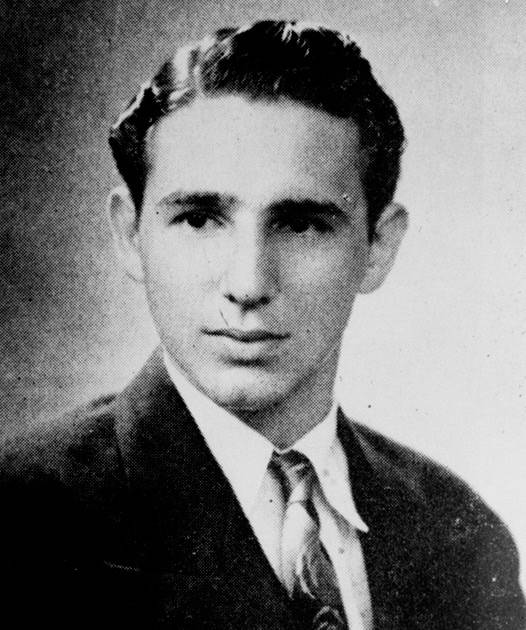
First steps in politics
Cuba was one of the colonies of Spain and had a rich history of uprisings. In the XIX century, there were three wars of independence: the Ten-Year War (1868-1878), the Small War (1879 — 1880) and the War of Independence of Cuba (1895 — 1898), all of which ended in the defeat of the rebels. However, during the last uprising "on the side" of the rebels, realizing their own strategic plans, the USA came out. The Spanish-American War of 1898 of the Year ended with the complete victory of the United States. The Paris Peace Treaty of December 10 1898 of the year affirmed Cuba's “independence”.
Thus, the Antilles Pearl for several decades has become a semi-colony of the United States, a place of rest and a “brothel” of Americans. American troops were stationed in all strategically important places in Cuba. Cuba's economy and finance were controlled by the Americans. At the same time, the political life of Cuba was distinguished by corruption, embezzlement, the power of politicians and demagogues who relied on oligarchic groups. Organized criminal groups (mafia) had a great influence in the country. Especially these phenomena flourished under President Grau San Martin (1944-1948).
There was a split in the ruling party. From it in 1947, a group of the most radical figures, mostly young people, emerged. They were headed by Senator Eduardo Chibas. He called the new party "Orthodox" (the party of the Cuban people), in a sign that it will continue the work of José Martí (a consistent fighter for the independence of Cuba from Spain). The symbol of the party has become a broom. Fidel became close to the leadership of the party and joined its ranks. In Cuba, a wave of political terrorism swept, dozens of people became victims. Opponents of the government killed. Several times they tried to kill Fidel.
In 1948, Fidel took part in the IX Pan-American Conference, which was held in Bogota (Colombia). 9 April 1948 was shot by leftist leader Jorge Elieser Gaitan, who was very popular among the people. An armed uprising in the capital (“Bogotaso”), in which Fidel took part, caused an attempt on him. The rebels besieged the presidential palace, pogroms were going on in the city, fires began, prisons were opened, and prisoners were released. Hundreds of people died, thousands were injured. As a result, this uprising was the beginning of a fierce civil war in Colombia, in which tens of thousands of people died. It lasted until 1958.
The experience of this spontaneous uprising showed Fidel the power of popular protest, which is capable of paralyzing power, and at the same time the need for a political organization and leader who can organize people to continue the struggle. The fury of spontaneous protest gradually subsides, it is strategically helpless and hopeless. Political leaders and organizations are needed to lead social protests. From a trip to Bogota, Fidel returned with the firm conviction that his path was the path of a professional revolutionary. Returning to Cuba, Fidel took an active part in the election campaign on the side of E. Chibas. In the elections, with the support of the economic elite and the Americans, the victory was won by Carlos Prio Socarras (1948 - 1952).
Fidel Castro successfully graduated from the university, although his political activity distracted him from his studies. Politics has become more important for him jurisprudence. In October 1950, Fidel Castro Ruz was awarded the title of Doctor of Law. He, along with two other lawyers, created a small law office. During this period, Fidel became well acquainted with the life of artisans and peasants, leading their affairs. The most notorious of his work was the collection of compromising materials on the president on Prio Sokarras. He found out that he bought land through his dummies for himself and his relatives. They built villas that were sold at speculative prices. And in the construction of illegally used state-owned equipment and soldiers. Fidel opened a criminal case against the president. Prio Socarras was accused of illegally acquiring property, violating the basic provisions of Cuban labor law, distorting the functions of the army, planting latifundia, etc. Discrediting information was announced through the press and radio. These materials were a serious blow to the government and at the same time increased the political weight of Fidel.
In February, 1952, the year Fidel discovered an even more dangerous business. He accused the authorities of symbiosis with the underworld. He collected a unique material and published it that the president personally presents monthly wages to the leaders of the underworld. In addition, the state pays 2 thousand posts in various parts of the state apparatus, where the gangsters only get paid, but do not work. Fidel called the names and those who come to the ministries and departments for money. He named the number of places that each criminal group has: the Polycarpio gang had the right to get 600 bureaucratic positions, the group under Masferrer was 500, the Colorado group 400, etc. Fidel Castro accused the head of the country of being “ bought and sold murders. " This event has the effect of a bombshell. Everyone thought that Fidel would be killed very soon. No one before him dared to announce such information. But he survived, apparently, helped a huge public outcry. In addition, a coup took place in the country, which diverted attention from Fidel Castro.
Fidel Castro reads in between fights in the Sierra Maestra mountains
Coup
The election of 1952, was approaching on such a high wave of public discontent, it became obvious that the ruling party would not retain power and victory would be won by the orthodox party. Polls indicated that more than half of voters did not support government policies. This caused fears of the authorities, business circles, the mafia and Washington. The corrupt state apparatus, the mafia and the USA needed a “strong hand” that would stop the growth of revolutionary ferment in Cuba.
Such a person was Fulgencio Batista-i-Zaldivar (1901-1973). He had a very rich biography. Batista had among the ancestors of the Negroes, and possibly the Chinese. Being a man from a poor family, he began working at a very early age. Batista did a lot of self-education, eagerly read books, attended evening school. His voucher was life in the army. Sergeant Batista became the trade union leader of the Cuban military and headed in September 1933, the so-called. “Sergeant Revolt”, during which the government was removed. Batista officially took the post of Chief of the General Staff of the Cuban Army, led the armed forces, was promoted to colonel, in fact, he was the head of the country until the 1940 year. All uprisings and revolts in his reign were ruthlessly suppressed. Batista was an ardent supporter of the pro-American course of Cuba and established close contacts with the American criminal community.
In the year 1940, Batista, with the support of a coalition of almost all political parties, officially became president of Cuba, driving the country until 1944. With him, Cuba further increased its economic dependence on the United States. Batista in 1942 year established diplomatic relations between the USSR and Cuba. Cuba was part of the anti-Hitler coalition, was at war with Germany, Italy and Japan. Participation in the anti-Hitler coalition was reduced mainly to the supply of sugar to the warring countries, including the USSR. Also, Cuban volunteers participated in the battles against Germany in Europe. Under the conditions of World War I, Batista strengthened his power: he introduced universal military service in Cuba, the National Anti-Fascist Front, the Cuban-American Foundation for Assistance to the Allies and other organizations operated in the country.
After losing the election in 1944, his longtime rival Ramon Grau lost power in 8 years. Batista at this time led a luxurious life in Florida. In 1948, he became a Cuban senator and in 1952, he decided to re-insert his candidacy in the presidential election. But Batista was not popular among the people and was an outsider in the election. When it finally became clear that Batista had no chance of winning the election, he organized a military coup.
On the night of March 10, 1952, Fulgencio Batista, together with a group of officers loyal to him, arrived at the main military town of Havana, Colombia. There was a big group of military men waiting for him. The conspirators, practically meeting no resistance, occupied the main objects and removed President Carlos Prio from power. Batista declared himself the “interim president” of Cuba on 2 of the year.
There was a wave of protests in the country. The leaders of the Federation of University Students arrived at the already ousted president and asked for approval to issue them weapons, to resist the military. Prio promised to give weapons. The university has gathered several hundred people, ready with arms in their hands to defend the freedom of Cuba. Fidel was among them. However, the promised weapon was never sent, Prio did not dare to resist and left the presidential palace. Disappointed people gradually went home. Fidel went to the suburbs of Havana and compiled a manifesto, where he called Batista an executioner of freedom and a usurper. He warned Batista: “By your actions you are sowing not the world, but the seeds of hatred. ... The hour of struggle and self-sacrifice has come. To give life is to lose nothing, but to live in chains is to live in shame. To die for one's homeland is to become immortal! ”Not a single newspaper published the manifesto, fearing reprisals from the new authorities.
27 March 1952, US President Harry Truman recognized the new Cuban government F. Batista as legal. The dictator, by the first act, raised the salary of police officers and the money content of the military. A military-police dictatorship was established in the country. Batista said that although in general he recognizes the Constitution of Cuba 1940 of the year, but the constitutional guarantees in the country should be temporarily suspended. In April, 1952 of the year, Batista created a new constitutional law, claiming that he retained in him the “democratic and progressive essence” of the Constitution of 1940.
America has further strengthened its position in Cuba. Batista opened the way for large-scale gambling in Havana. Havana became the "Latin American Las Vegas", and the entire tourist and entertainment business in the country was controlled by American gangsters. Batista received millions of bribes from the Mafia in the form of "offerings" and gifts. Criminal groups organized a real slave market: they abducted girls for brothels, of which there were several thousand in Havana alone. The conditions of the “work” in the brothels were so heavy that the average life expectancy of prostitutes in them was 7 years.
At the same time, Americans controlled more than 2 / 3 island economies: including 90% mining, 90% electric and telephone companies, 80% utilities, 80% fuel consumption, 40% of all sugar crops. A significant part of the land belonged to large landowners-latifundists. About 50% of landowners had more than a third of the land fund in their hands, while 0,5% had less than 70% of the land. 12 thousand peasant families in general did not have land. At the same time, only 200% of the land was cultivated in the largest latifundia, 10% were abandoned. Unemployment at Batista reached a record high of 90% (previously it was around 40%). Prostitution has become a mass phenomenon, reaching a large proportion of women, especially in urban areas. Girls and women were forced to sell their bodies in order to earn themselves and their families a piece of bread for food. Cuba became an example of a huge social stratification, where the brilliance of hotels and casinos, where foreigners and representatives of the Cuban "elite" were entertaining, hid the terrible poverty of the majority of the population. Cuba was one of the most vivid examples of social injustice of the Western type of society, the capitalist world.
American historian, writer Arthur Schlesinger described his impressions in this way: “I was fascinated by Havana, but I was horrified that this delightful city was turned into a big casino and a brothel for American business people. ... My compatriots were walking along its streets, taking the 14 girls with them for years and throwing coins into the street crowd to watch the fight of people trying to grab them. I wondered if Cubans, seeing this reality, can relate to the United States differently than with hatred. ”
It was this desperate social injustice, where most of the Cuban people were doomed to poverty, to daily humiliation of human dignity, to remain victims of the arbitrariness of the rich and powerful all their lives, they put Fidel into the people's leaders. In fact, he became “one warrior in the field,” who expressed anger and discontent with the common people.
Fidel Castro 24 March finished work on a document where he summarized the crimes of the Batista regime and demanded his criminal punishment. The case was submitted to the Havana court on particularly important and urgent matters. Fidel Castro, referring to the current legislation, listed the articles violated by Batista. Thus, the article 147 for actions aimed at changing the form of government and the constitution, was provided from 6 to 10 years of imprisonment. According to Fidel, Batista, in the aggregate, committed unlawful acts for more than 100 years in prison. Fidel Castro demanded that Batista be brought to court, putting the following question with implication: “How can this tribunal otherwise judge a simple citizen who comes out with a weapon in his hands against this illegal regime, which came to power as a result of the betrayal? It is absolutely clear that the conviction of such a citizen would be absurd, incompatible with the most elementary principles of justice. ”
Thus, it was an open challenge to the regime. Fidel raised publicly the question of the legality of the armed struggle against the Batista criminal regime. The authorities did not respond to this demarche. Apparently, the young lawyer did not seem dangerous to them. Behind him there was no political organization, no influential representatives of the business community, no friends, no means. His potential was underestimated.
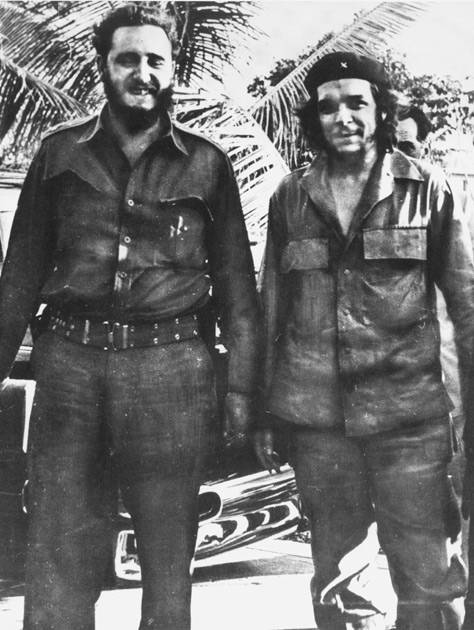
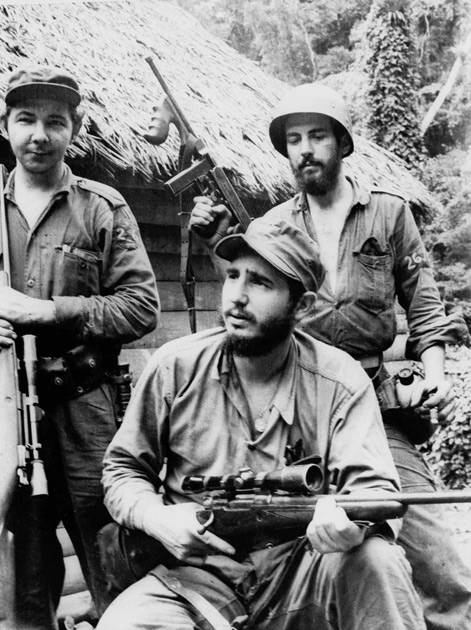
To be continued ...
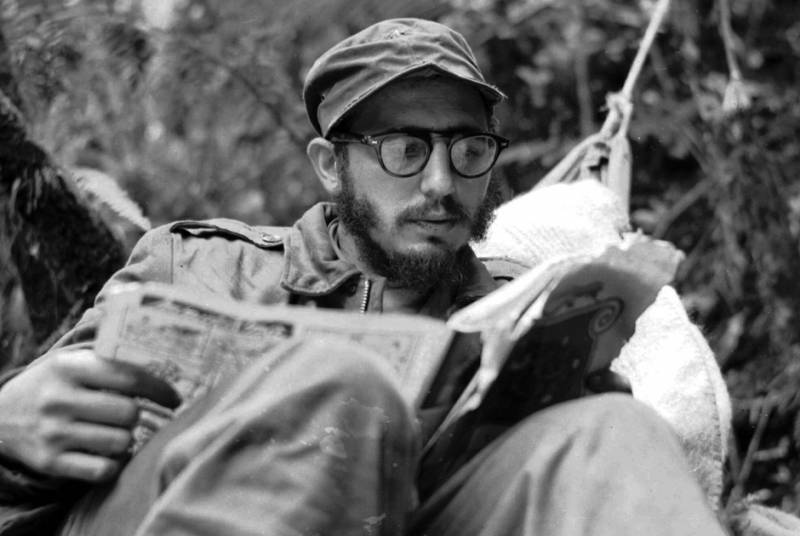
Information